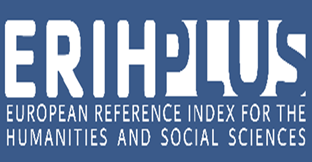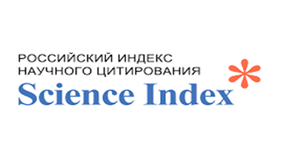The reconstruction of the archaic stratum of the Bashkir epic “Zayatulyak and Khyukhylu”: myth, ritual and video versions in the XXI century
Views: 372 / PDF downloads: 213
DOI:
https://doi.org/10.32523/2664-5157-2021-4-76-97Keywords:
epic, audiovisual anthropology, folklore, storytelling, live performance, traditions, mythological meanings, mythological semiotics, SufismAbstract
The performance of the epic from living memory in the 21st century is itself a rare, phenomenal and historically significant phenomenon for all cultures, the spiritual foundations of which go back to the oral and poetic transmission of knowledge. The main genre of folklore has long been depleted in existence and performing practice, and it is threatened with extinction (in the Bashkir environment, especially). However, methodically verified, continuous and purposeful searches are giving themselves the results, and our personal fund has collected a significant amount of video and audio materials with fixation of the live performance of epics, cubaiers, as well as folk dances, songs (yir), games. The stories-memories of the performance and transmission of the epic are of special value. The successive word-of-mouth performance of the epic by its creator, according to the requirements of UNESCO, is the main evidence of the ethnic identity and belonging of the work
to its people. In this regard, all searches and discoveries of even fragmentary variants and versions of the epic are valuable, important signs about the state of folklore and folklore memory in modern times. The study of findings and the return to the practice of application is akin to the high civic responsibility of scientists and goes beyond the purely scientific framework. An epic lives when it is preserved not only in the memory of the people but is also sung melodiously. Our purposeful fixations on audio and video media have given a new stage in the comprehension of the Bashkir epic. It is known that a historically important find was the audio and video recording of the epic «Ural-Batyr» in 2010 in a live melodious and recitative performance, made by us by A.M. Usmanova (1930-2015), a storyteller from the village Akyar of the Khaibulli district of the Republic of Belarus. Recordings of versions of the epic «Zayatulyak and Khyukhylu» in the Davlekanov district of the Republic of Bashkortostan and in the city of Rostov-on-Don of the Russian Federation became another rare acquisition. The article contains a comprehensive analytical study of the key plot codes of the published versions of the epic «Zayatulyak and Khyukhylu» that have not yet been deciphered from mythological, mythological-semantic, worldview points of view. Based on the disclosure of deep symbols, metaphors and component study, the primary astral-calendar layer of the myphoromaniac epic is reconstructed. The episodes, lexical units that have most fully retained archaic symbolism, mythological conceptions are covered with coverage of the arsenals of anthropology, ethnography, ritualism, and mytholinguistics; methods and approaches of national audiovisual folklore studies are presented, which is still in its infancy as an independent discipline.
Downloads
Reference
Shakurov Sh. Vizual’naya antropologiya: prostranstvennoe videnie i metody izobrazheniya cheloveka [Visual Anthropology: Spatial Vision and Methods of Human Representation]. In: Trudy Otdeleniya istoriko-filologicheskih nauk RAN [Proceedings of the Department of Historical and Philological Sciences of the Russian Academy of Sciences]. Moscow, Nauka, 2007. – 47 s. [in Russian].
Klyaus V.L. Audiovizual’naya fol’kloristika: istoriya i problematika [Audiovisual Folklore Studies: History and Problems]. In: Materialy Mezhdunarodnoj nauchnoj konferencii «Fol’klor v audiovizual’nyh issledovaniyah Ot polveyh zapisej k mediaproektu: metodologiya i praktika [Materials of the International Scientific Conference “Folklore in Audiovisual Research. From field recordings to media projects: methodology and practice]. Moscow, 2019. – S. 15-16. [in Russian].
Yuldybaeva G.V. Bashkirskij narodnyj epos «Zayatulyak i Hyuhylu» (istoriya sobiraniya, izdaniya i issledovaniya) [Bashkir folk epic «Zayatulyak i Khyukhylu» (history of collection, publication and research)]. In: Filologicheskie nauki. Voprosy teorii i praktiki [Philological sciences. Questions of theory and practice]. Tambov, Gramota, 2015, No8, ch. 3. P. 214-217. [in Russian].
Dal V.I. Bashkirskaya rusalka [Bashkir mermaid]. In: Moskvityanin [Moskvitian]. Moscow, 1843, No 1. [in Russian].
Hubbitdinova N.A. Hudozhestvennoe otrazhenie fol’klora v literature XIX v. (k probleme russko-bashkirskih fol’klorno-literaturnyh vzaimosvyazej) [Artistic reflection of folklore in the literature of the XIX century. (to the problem of Russian-Bashkir folklore and literary relationships)]. Ufa, Gilem, 2011. 126 p. [in Russian].
Bashkirskij narodnyj geroicheskij epos. A.N. Kireev; otv. red. M.G. Rahimkulov [Bashkir folk heroic epic / A. N. Kireev; executive editor M.G. Rakhimkulov]. Ufa, Bashknigoizdat, 1970. 304 p. [in Russian].
Dal V.I. Polnoe sobranie sochinenij [Full composition of writings]. Saint Petersburg, 1861. [in Russian].
Suhodolskij L. Legendy o Tulyake [Legends about Tulyak]. In: Orenburgskie gubernskie vedomosti [Orenburg Provincial Gazette]. Ufa, 1858, No46. P. 123-126; Vestnik Imperatorskogo Russkogo Geograficheskogo obshchestva. 1858. red. V. P. Bezobrazova [Bulletin of the Imperial Russian Geographical Society. 1858 / ed. V.P. Bezobrazova]. Saint Petersburg, V tip. Morskogo Ministerstva, 1858, Ch. 24, No 12. P. 65-72. [in Russian].
Ignatyev R.G. Ustnye pereskazy, sobrannye v Troickom, Verhne-Ural’skom i otchasti Orskom uezdah Orenburgskoj gubernii [Oral retellings were collected in the Troitsk, Verkhne-Uralsk and partly Orsk districts of the Orenburg province]. In: Zapiski Orenburgskogo otdela Imp. Russkogo geograficheskogo obshchestva. Vyp. 3 [Notes of the Orenburg department Imp. Russian Geographical Society. Issue 3]. Orenburg, 1875. P. 207-211. [in Russian].
Bashkort halyk izhady. Epos. III tom. / Toz., bash һuz, komment. avt-ry A.M. Solajmanov, R.F. Razhapov. Ofo, 1998. – 445 p. [in Bashkir].
Bashkirskij narodnyj epos. Pod red. A. Petrosyana. Sost.-li: A. Mirbadaleva, M. Sagitov i A. Harisov [Bashkir folk epic. Ed. A. Petrosyan. Composed by: A. Mirbadaleva, M. Sagitov and A. Kharisov]. Moscow, Nauka, 1977. P. 55-162, 265-373. [in Russian].
Potanin G.N. Doch’ morya v stepnom epose. EO [The daughter of the sea in the steppe epic. EO]. Moscow, 1892, No1. P. 38-69. [in Russian].
Ahmadrahimova O.V. Bashkirskij narodnyj epos «Zayatulyak i Hyhylu»: varianty i literaturnye versii. Disser. na soiskanie uch. st. kand. fil. nauk [Bashkir folk epic «Zayatulyak and Khykhylu»: variants and literary versions. Dissertation for the degree of candidate of philological sciences]. Ufa, BGU, 2017. – 167 p. [in Russian].
Yuldybaeva G.V. Zayatulyak i Hyuhylu [Zayatulyak and Khykhylu]. In: Duhovnaya kul’tura bashkirskogo naroda. t. 1. Pod obshch. red. A.V. Psyanchina, otv. red. R.A. Sultangareeva [Spiritual culture of the Bashkir people. v. 1. Under the general editorship of A.V. Psyanchina, executive editor R.A. Sultangareev]. Ufa, Bashk. encikl., 2018. P. 47-59. [in Russian].
Bashkirskoe narodnoe tvorchestvo Epos. I tom. Predisl. M.M. Sagitova, per. G.G. Shafikova [Bashkir folk art Epos. I volume. / Foreword by M.M. Sagitov, translated by G.G. Shafikov]. Ufa, Bashknigoizdat, 1976. – 541 s. [in Russian].
Soltangaraeva R.A. Bashkort sasan maktabe. Ofo, 2012. 291 p. [in Bashkir].
Kondybaj C. Kazahskaya mifologiya [Kazakh mythology]. Almaty, 2005. – 95 s. [in Russian].
Nechvaloda E.E. Ornament schetnoj vyshivki Bashkir [Ornament of counted embroidery Bashkir]. Ufa, Kitap, 2018. 210 p. [in Russian].
Kondybaj C. Mifologiya predkazakhov. Kniga 1. [Ancestor mythology. Book 1.] – Аlmaty: SaGa, 2011. – 463 s.
Dugin A. Absolyutnaya Rodina. Puti Absolyuta. Metafizika Blagoj Vesti. Misterii Evrazii [Absolute Homeland. The way of the Absolute. Metaphysics of the Good News. The mysteries of Eurasia]. Moscow, Arktogeya-centr, 1999. 752 p. [in Russian].
Idris Shah. Sufizm [Sufizm]. Moscow, Klyshnikov i Komarov I, 1994. (sm. Kondybaj S. 1. t. 2011, s. 344). Sm.; internet resurs. obrashchenie 8. 09. 2021; sm. soch. F.A. Petrovskogo v knige: Ovidij. Sobranie sochinenij. V 2 t [(see Kondybai S. vol. 1. 2011, p. 344). Cm.; Internet resource. appeal 8.09.2021; see the composition of F.A. Petrovsky in the book: Ovidii. Collected Works. In 2 volumes]. Saint-Petersburg, Biogr. in-t «Studia», 2020. [in Russian].
Pajgambarlar tarihy (Tekst). – Kazan, 2003. – 304 b. [in Tatar].
Soltangaraeva R.A Epos һam halyk. In: Agizel. No10. 2021. P. 132-152. [in Bashkir].24. Kondybaj C. Mifologiya predkazakhov. [Ancestor mythology.] – Аlmaty: SaGa, 2008. – 470 s.25. Losev A.F. Dialektika mifa. [Dialectics of myth]. Moscow, 2008. 303 p. [in Russian].
Haltaeva L.A. Kosmogonicheskie simvoly 12-letnego ohotnich’ego kalendarya tyurko-mongol’skih narodov «Pleyady» [Cosmogonic symbols of the 12-year hunting calendar of the Turkic-Mongol peoples «Pleiades» In: Tengrianstvo i epicheskoe nasledie narodov Evrazii: istoki i sovremennost’. Materialy VII Mezhdunarodnoj nauchno-prakticheskoj konferencii 21-22 sentyabrya 2019 g. Bishkek [Tengrianism and the epic heritage of the peoples of Eurasia: origins and modernity. Materials of the VII International Scientific and Practical Conference September 21-22, 2019 Bishkek.]. Bishkek, Altyn tamga, 2019. 360 p. [in Russian].
Mukanov M.F., Doszhanov B.T., Sulejmenov M.SH. Hudozhestvennye obrazy arhetipov modelej tyurkskogo mirozdaniya v iskusstve sovremennogo kazahskogo gobelena [Artistic images of archetypes of models of the Turkic universe in the art of modern Kazakh tapestry]. In: Materialy mezhdunarodnoj nauchno-teoreticheskoj konferencii «Naslediya Serikbola Kondybaj: novye vzglyady na razvitie mirovoj mifologii» (k 50-letiyu uchenogo, mifologa S. Kondybaj) (6-8 iyunya 2018g., Aktau) [// Materials of the international scientific and theoretical conference «Heritage of Serikbol Kondybai: new views on the development of world mythology» (to the 50th anniversary of the scientist, mythologist S. Kondybai) (6-8 June 2018., Aktau)]. Aktau, Ekozhan. P. 336-350. [in Russian].
Nadrshina F.A. Bashkirskij fol’klor kak istoricheskij istochnik [Bashkir folklore as a historical source]. In: Istoriya bashkirskogo naroda v 7 tomah. t.1 [History of the Bashkir people in 7 volumes. V.1]. Moscow, Nauka, 2009. P. 339-360. [in Russian].
Istoriya bashkirskogo naroda v 7 mi tomah. T.1 [History of the Bashkir people in 7 volumes. V.1]. Ufa, «Gilem», 2011. 370 p. [in Russian].
Hobbitdinova N.A. Bashkort mifologiyaһynda Һyuһylyu obrazy. In: Vatandash. 2021. No1. P. 133-142. [in Bashkir].
Shcherbinin P.P. Posvyatitel’nye tradicii v professional’nyh tradiciyah. In: ”Muzhskoe” v tradiciyah i sovremennom obshchestve. RNII kul’turnogo i prirodnogo naslediya im. D.S. Lihacheva MK RF i RAN, Institut im Mikluho-Maklaya [Dedicatory traditions in professional traditions // «Male» in traditions and modern society. Russian Research Institute of Cultural and Natural Heritage. D.S. Likhachev MK RF and RAS, Miklouho-Maclay Institute]. Moscow, 2003. 93 p. [in Russian].
Sultangareeva R.A. Materinstvo i devichestvo v bashkirskoj mifologii i obryadovom fol’klore: istoki, transformacii [Motherhood and girlhood in Bashkir mythology and ritual folklore: origins, transformations]. In: Sibirskij filologicheskij zhurnal [Siberian Journal of Philology]. No1. 2021. P. 37-50. [in Russian].
Bashkort halyk izhady. Akiattar. Osonso kitap. Toz. Nur Zaripov, Marat Minһazhetdinov. Anlatmalar Lev Barag menan Nur Zaripovtyky.Bashkortostan kitap nashriate. 1978. 330 p. [in Bashkir].
Galin S.A. Bashkirskij narodnyj epos [Bashkir folk epic]. – Ufa: Bashkirskoje knizhnoje izdatelstvo, 1970. – 304 стр.
Kireev A.N. Bashkirskij narodnyj geroicheskij epos [Bashkir folk heroic epic]. Ufa, 1970. [in Russian].
Hubbitdinova N.A. Aktual’nye aspekty izucheniya problemy fol’klorno-literaturnyh vzaimosvyazej v bashkirskoj literature (XIII – nachala XIX vekov): rezul’taty i perspektivy issledovaniya [Actual aspects of studying the problem of folklore and literary relationships in Bashkir literature (XIII – early XX centuries): results and prospects of research]. In: Filologiya i chelovek [Philology and man]. No 1. Barnaul, 2016. P. 52-68. [in Russian].
Downloads
Published
How to Cite
Issue
Section
License
Copyright (c) 2022 Turkic Studies Journals

This work is licensed under a Creative Commons Attribution-NonCommercial 4.0 International License.
























